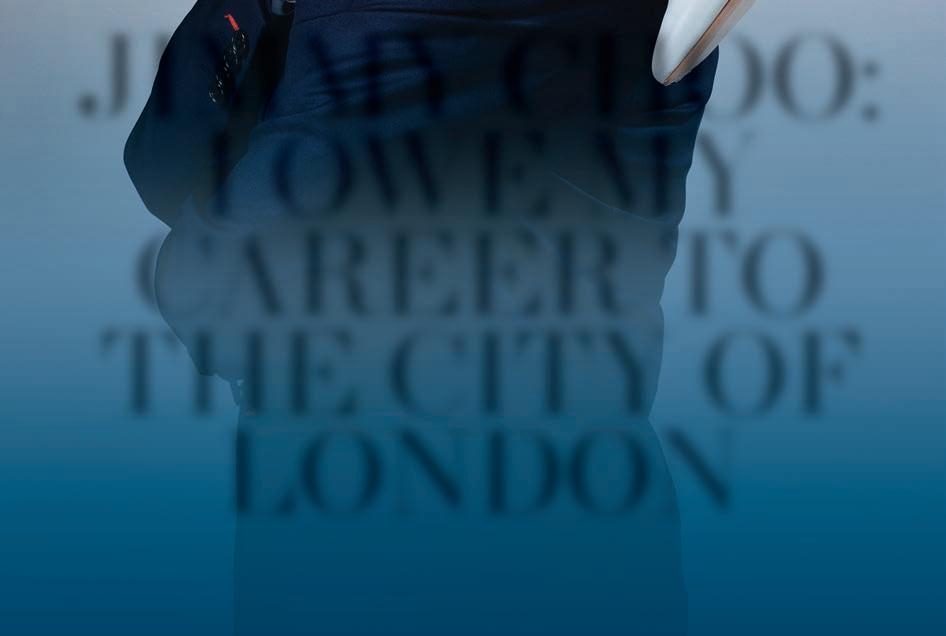
4 minute read
The Tories have lost rural England - and whoever wins it could triumph in politics
by cityam
Mark Tufnell
IN POLITICS, few things have endured longer than the Conservatives’ bond with rural communities.
As David Cameron once said, “the Conservative Party is the party of the shires.” But in recent years, we’ve seen how quickly the electoral map can be redrawn. In the next general election, it could be the countryside’s turn. According to polling we commissioned with Survation, since 2019, the Tories have suffered an 18 per cent collapse in support across England’s 100 most rural seats. And only 36 per cent agree that the Conservatives “understand and respect rural communities and their way of life.”
This major slump in support is the price the Conservatives are paying for such little ambition for the rural economy. Like any historic shift in political loyalty, this hasn’t taken place overnight. The rural economy is 19 per cent less productive than the national average, the equivalent of £43bn of economic activity being unnecessarily held back. This failure is so far-reaching that no one government, or no one party, is to blame.
But the Conservatives have been in power for 13 years. And rather than treating the countryside as a home to thousands of communities, too often it has been treated like a museum piece: to be looked at, but not touched.
EXPLAINER-IN-BRIEF: HOW DOES APPLE’S NEW VIRTUAL REALITY HEADSET WORK?
Apple launched Apple Vision Pro, its $3,499 virtual reality headset, this week. Apple CEO Tim Cook described it as “the first Apple product you look through, not at”. The headset reproduces either an augmented reality version of what we see or a fully immersive virtual reality. Mostly, the headset - which looks like a futuristic version of your ski goggles - will act as a board where you can use apps, scroll through pictures and sign documents just by flicking your hands through the space in front of you. The technology has been praised by the analysts and experts who have tried it, with the only caveat that it has a twohour battery life. Apple has made a brave bet: the product could prove a commercial flop, at least initially, given its price is so high. But as new technology develops, it might become more mainstream. How mainstream we’re talking will be a very interesting question for the future.
ELENA SINISCALCO
On housebuilding, the prime minister has restated his insistence that councils shouldn’t consider the green belt for development. But our polling found 44 per cent of rural voters support new homes being built in their communities, because they are crying out for affordable housing to stop pushing out workers, and the young, from the countryside.
Another 44 per cent say reforming planning laws would stimulate growth in rural communities. We recently found 70 per cent of rural businesses have lost up to £50,000 having been forced to abandon new projects due to the outdated planning regime.
Archaic infrastructure has also been hindering many rural businesses. A recent report from the All-Party Parliamentary Group (APPG) on Rural Business found only 46 per cent of businesses are receiving serviceable 4G, preventing them from accessing new customers in the face of decreasing footfall.
And the countryside has been suffer- ing a cost-of-living premium. As a result of weaker energy security and worse infrastructure, countryside residents have to pay up to 20 per cent more on everyday items like fuel, despite wages being 7.5 per cent lower than their urban counterparts.
Like the “Red Wall” that collapsed at the last general election, the Tories “Rural Wall” could collapse as a result of being left behind.
Yesterday, the government took seven recommendations from our Rural Powerhouse Campaign, as part of its “unleashing rural opportunity” package.This is a promising step, but further action is needed to regain rural voters' trust and meet the aspirations of rural businesses.
Our same poll has shown a significant swing towards Labour. But before Sir Keir and his party celebrate, Labour should be reminded it deserves little credit for picking up voters almost by default. It so often offers warm words, but little in the way of substantive policy, in communities it has traditionally shown no understanding of.
Like every political party in the UK, Labour has shown no vision on how to unlock the £43bn potential of the rural economy. It had nothing to say on fixing the broken planning system, stemming the rural ‘brain drain’, or anything addressing the poor broadband connectivity holding businesses back.
This is why, in terms of who understands rural communities, Labour and the Lib Dems are still polling behind the Conservatives.
For the first time in generations, the countryside – home to 12 million people – finds itself politically homeless. No party is speaking to their aspirations.
The first party willing to develop a new blueprint for the rural economy, one that creates jobs, strengthens communities and matches the ambitions of its people, will not only secure significant support, but may also just win the next general election.
£ Mark Tufnell is the chair of the Country Land and Business Association
The name Jimmy Choo might remind you of Carrie Bradshaw’s shoe infatuation on Sex and the City – “No!” she cried in one episode, dropping her stilettos off the edge of the Staten Island Ferry. “My Choos!”
What it’s unlikely to remind you of is the City of London. But Jimmy Choo has always lived and worked in our capital. He’s a liveryman and member of the Worshipful Society of Cordwainers, which is where he studied and to where he says he owes his career.

But the London of today is a very different beast and an increasingly hostile environment for young creatives. Burgeoning designers are being pushed out due to high rents, expensive materials and a lack of studio space and new data from the Heritage Crafts Association reveals shoemaking to be one of the most atrisk professions.
So now Choo is going back to where it all started, taking on an ambassadorship for the Cordwainers, opening his JCA London Fashion Academy in Mayfair in 2021 and, last year, launching a new Hounslow outpost to support up-and-coming shoemakers.
“Without the Cordwainers I wouldn't be here talking to you today,” he tells me from his Kuala Lumpur office.
“Thanks to all the teachers who were patient and taught me how to design the shoe. The Cordwainers helped me work together with my college mates, not only to teach how to design a shoe, but how to be in harmony, love each other and share the love with each other.”
Choo was a student at the Cordwainers College in London in the 1980s after his father taught him the art of shoemaking growing up in Penang from the age of 11. He sold his 50 per cent share of the eponymous brand in 2001 for £10m but still designs couture, spending his time “half-half” between his London HQ on Conduit









